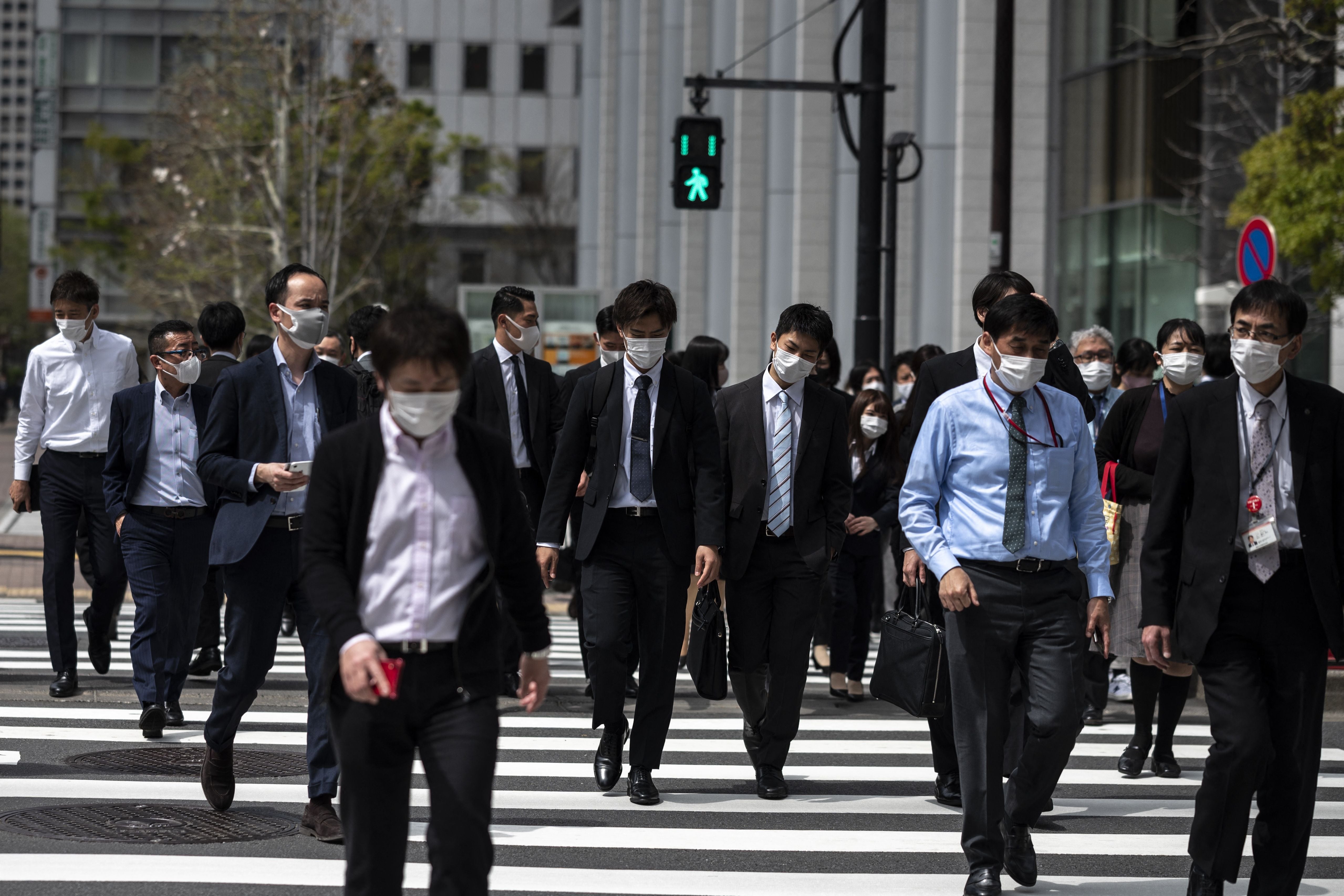Japan recommends four-day working week to increase productivity
Covid pandemic has sparked shift in country’s notoriously intense working culture

Your support helps us to tell the story
From reproductive rights to climate change to Big Tech, The Independent is on the ground when the story is developing. Whether it's investigating the financials of Elon Musk's pro-Trump PAC or producing our latest documentary, 'The A Word', which shines a light on the American women fighting for reproductive rights, we know how important it is to parse out the facts from the messaging.
At such a critical moment in US history, we need reporters on the ground. Your donation allows us to keep sending journalists to speak to both sides of the story.
The Independent is trusted by Americans across the entire political spectrum. And unlike many other quality news outlets, we choose not to lock Americans out of our reporting and analysis with paywalls. We believe quality journalism should be available to everyone, paid for by those who can afford it.
Your support makes all the difference.Japan is pushing employers to cut down the working week to four days as part of a series of new economic guidelines.
The country’s corporate culture is notoriously intense and karoshi, a term meaning “death from overwork”, was coined in Japan in the 1970s due to the onerous work pressures employees face.
But the coronavirus pandemic has forced significant shifts into how many companies operate, with many workers having to work from home due to lockdown restrictions.
The Japanese government, which in recent years has been trying to modernise the country’s approach to work, wants to encourage a healthier work-life balance and cajole companies to move towards offering more flexible hours and remote working.
Martin Schulz, chief policy economist at Japanese firm Fujitsu, told Deutsche Welle: “The government is really very keen for this change in attitude to take root at Japanese companies.
“During the pandemic, companies have shifted to new ways of operating and they are seeing a gradual increase in productivity.
“Companies are having their employees work from home or remotely, at satellite offices or at their customers’ locations, which can be far more convenient and productive for many.”
The government hopes the new four-day working week guidelines could have other knock-on benefits to Japanese society and the economy if they are adopted by companies.
It anticipates an extra day off could push people to spend money that will boost the economy and even lead to increased marriage and birth rate, another key policy objective in a country with a rapidly ageing population.
Japan is not the first country to consider shortening the working week. Spain is set to trial a four-day week and it has also been mooted in New Zealand and Germany.
Former Labour leader Jeremy Corbyn also floated the benefits of the shortened working week ahead of the 2019 general election.
Join our commenting forum
Join thought-provoking conversations, follow other Independent readers and see their replies
Comments